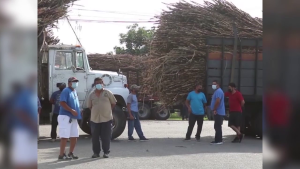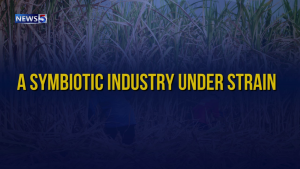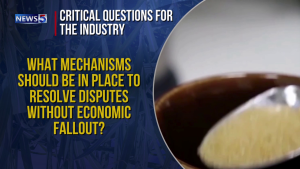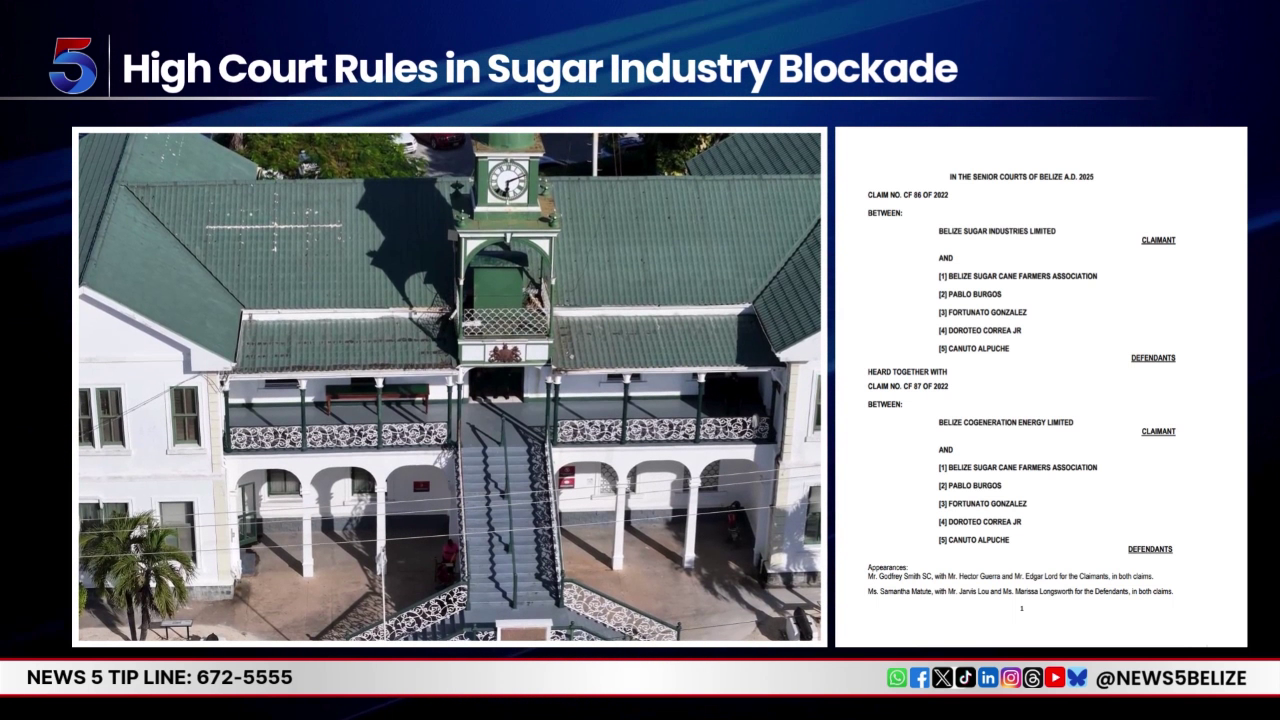High Court Hits Cane Farmers with Costly Ruling Over 2021 Blockade
The High Court has ruled that the Belize Sugar Cane Farmers Association and two of its members must pay over half a million dollars in damages. Why? A three-day blockade back in December 2021 brought the BSI sugar mill to a standstill and the court says it wasn’t just a protest, but a calculated move to pressure the company during a breakdown in talks. But this ruling goes beyond pointing fingers, it shines a light on deeper issues of accountability, readiness, and the delicate balance that holds Belize’s sugar industry together. When tensions boil over, who should pay the price? Here’s News Five’s Isani Cayetano.
 Isani Cayetano, Reporting
Isani Cayetano, Reporting
A landmark ruling from the High Court has found the Belize Sugar Cane Farmers Association and two of its members liable for over half a million dollars in damages after a three-day blockade of the Belize Sugar Industries Limited mill in December 2021 brought operations to a grinding halt. The protest, triggered by a breakdown in commercial negotiations between BSI and the BSCFA, saw cane-laden trucks block the entrances to the mill and its residential compound. The court found that this action, though not officially sanctioned by the BSCFA, was effectively enabled by its leadership, who failed to intervene until a new agreement was reached.
 Justice Rajiv Goonetilleke ruled that the blockade was a deliberate act of economic pressure, not a spontaneous protest. The court awarded BSI BZD 520,674 in damages for lost production and employee costs. A related claim by Belize Cogeneration Energy Limited (BCEL), which relies on BSI’s byproduct bagasse to generate electricity, resulted in an additional BZD 43,456 in damages. However, the judgment also raised questions about the companies’ own preparedness and response. The court found that both BSI and BCEL could have mitigated some of their losses. For instance, BCEL had a reserve of bagasse that could have kept its power plant running during the blockade but chose not to use it.
Justice Rajiv Goonetilleke ruled that the blockade was a deliberate act of economic pressure, not a spontaneous protest. The court awarded BSI BZD 520,674 in damages for lost production and employee costs. A related claim by Belize Cogeneration Energy Limited (BCEL), which relies on BSI’s byproduct bagasse to generate electricity, resulted in an additional BZD 43,456 in damages. However, the judgment also raised questions about the companies’ own preparedness and response. The court found that both BSI and BCEL could have mitigated some of their losses. For instance, BCEL had a reserve of bagasse that could have kept its power plant running during the blockade but chose not to use it.
 The case highlights the fragile interdependence between cane farmers and mill operators in Belize’s sugar industry. While farmers rely on BSI to buy their cane, BSI depends on timely deliveries to keep its mill running. The blockade, which began on the very first day BSCFA was scheduled to deliver cane, was seen by the court as a strategic move to force BSI’s hands in negotiations. Should farmer associations bear full responsibility for the actions of their members? Could BSI and BCEL have done more to prevent or respond to the disruption? What mechanisms should be in place to resolve disputes without an economic fallout? This case may serve as a cautionary tale, and a call for more resilient and transparent systems of negotiation and accountability. Isani Cayetano for News Five.
The case highlights the fragile interdependence between cane farmers and mill operators in Belize’s sugar industry. While farmers rely on BSI to buy their cane, BSI depends on timely deliveries to keep its mill running. The blockade, which began on the very first day BSCFA was scheduled to deliver cane, was seen by the court as a strategic move to force BSI’s hands in negotiations. Should farmer associations bear full responsibility for the actions of their members? Could BSI and BCEL have done more to prevent or respond to the disruption? What mechanisms should be in place to resolve disputes without an economic fallout? This case may serve as a cautionary tale, and a call for more resilient and transparent systems of negotiation and accountability. Isani Cayetano for News Five.






Facebook Comments